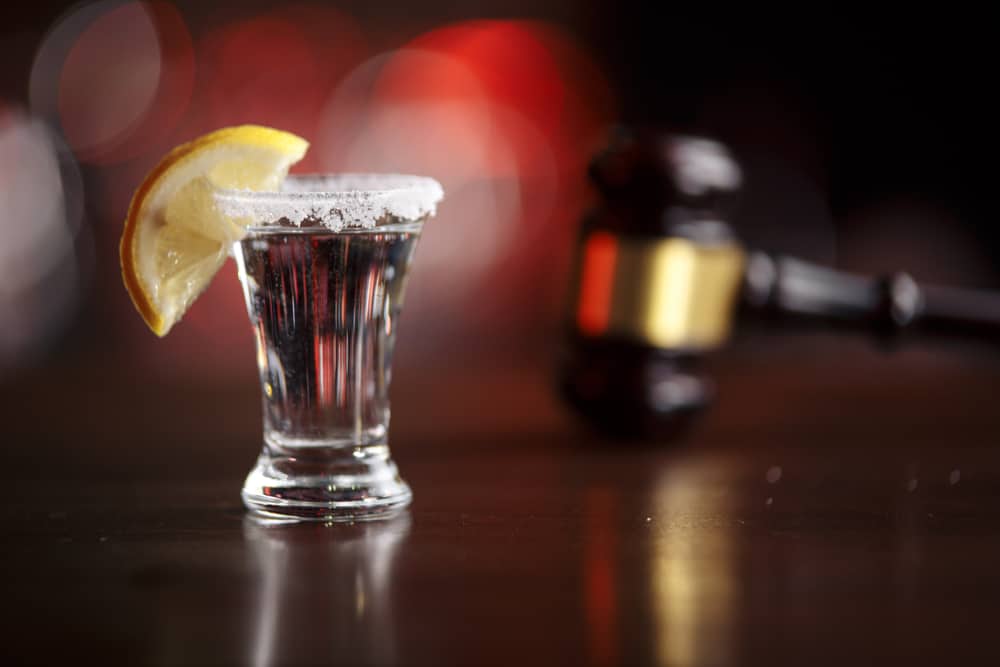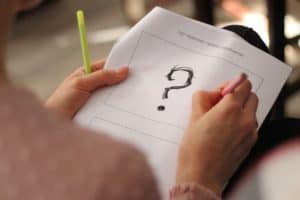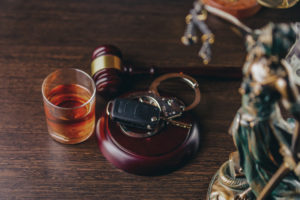
A conviction for drinking and driving means a severe fine and a suspension of your driver’s license for up to two years. You will likely also face jail time along with several other penalties. You will also have a permanent criminal record, potentially interfering with the rest of your life.
Before you plead guilty and derail your entire life, talk to a DWI lawyer in University Park to learn more about your options. The Law Offices of Randall B. Isenberg provides a no-cost consultation and case evaluation, to answer your questions and help you make an informed choice.
Penalties for a University Park DWI Conviction
The penalties you face for DWI depend on several factors, including:
- Your blood alcohol concentration (BAC)
- Your prior drunk driving record (if applicable)
- Any aggravating factors present at the time of arrest
Absent any other confounding factors, you will face Class B misdemeanor charges for a first-offense DWI, punishable as follows:
- Up to 6 months in jail
- Up to $2,000 in fines
- Up to a 1-year license suspension
However, if your BAC reading was 0.15 or above, you will face a Class A misdemeanor charge, punishable as follows:
- Up to 1 year in jail
- Up to $4,000 in fines
- Up to a 2-year license suspension
For a second-offense DWI, you will also face Class A misdemeanor charges. For a third or subsequent offense, you face felony DWI charges that carry a $10,000 fine and between 2 and 10 years in prison.
Potential felony offenses include the following:
- DWI with a child passenger
- Intoxication assault (aka DWI involving injuries)
- Intoxication manslaughter (aka DWI resulting in death)
The court may also impose:
- Probation
- Community service
- Substance abuse treatment
The judge may require that you install an ignition interlocking device on your vehicles, which you must also pay for.
To reinstate your license and keep it in good standing, you must pay an annual surcharge of up to $2,000 for a total of three years.
You will also have a permanent criminal record, which can cause your car insurance rates to skyrocket and impede your ability to get a job, rent an apartment, or get into a good school. You may also become disqualified from having many types of professional licenses.
As you can see, despite what the police and prosecutor may want you to believe, a DWI conviction is a very big deal. See how a University Park DWI lawyer can help you. Call us today: 214-814-8645.
How a University Park DWI Lawyer Can Help You
Never assume that you are automatically bound for a DWI conviction — even if the evidence seems overwhelming.
When you trust University Park criminal defense attorney Randall Isenberg and his team to assist you with your DWI case, you can rest assured that we will be there for you throughout the criminal justice process, protecting your legal rights and fighting for your future.
With more than 30 years in the Texas criminal justice system, including time as a judge and prosecutor, Randall understands how the system works from both sides. This unique insight means our team knows how to get the job done for you.
We will:
- Protect your rights under the law
- Represent you in all matters related to your criminal trial
- Represent you at your ALR hearing
- Answer your questions and explain your options
We will also scrutinize the facts and evidence of your case in search of any potential weakness, such as a violation of your legal rights or procedural error committed by the police. We can use this information to engage the prosecutor in negotiations, potentially getting your charges reduced or dismissed.
We will identify the best legal strategies to use in your defense and, if we must proceed to trial to defend you against DWI charges, we will fight tirelessly on your behalf. We will present the strongest possible case to introduce reasonable doubt.
The Important Role of Your Driver’s License Suspension Hearing
When you get arrested for DWI in University Park, it triggers the Administrative License Revocation (ALR) process. This is the process the Texas Department of Public Safety (TxDPS) uses to suspend your driver’s license for drunk driving. The ALR process, an administrative (civil) proceeding, takes place separate from the criminal process.
If you wish to protest the suspension of your license, you must request a hearing. If you fail to do so, TxDPS will automatically suspend your license.
Our services related to the ALR process include the following:
- Scheduling your ALR license suspension hearing
- Obtaining all evidence related to your case
- Preparing you to give testimony at the hearing
- Making the strongest case for keeping your license
We will also compel the arresting officer to appear in person at the hearing, to give testimony under oath. This allows us to question the officer and determine the strength of the prosecution’s case in your criminal proceeding. We can then use that information to determine the best legal strategy to use in your case.
If the judge elects to suspend your license, we can file an appeal or petition to get you an occupational license, which will allow you to drive to work, school, and court.
Potential Legal Defenses for Your University Park DWI Charges
Our legal team will choose the strategies for your defense based on the facts and information pertinent to your case. However, some of the most commonly used legal defenses for DWI charges include:
- Lack of reasonable suspicion for pulling your car over
- Lack of probable cause for placing you under arrest
- Errors in the performance of chemical BAC testing
- Errors in the processing or storing of evidence
- False positive BAC testing results
- Violations of your legal rights by the police
We have many options for finding weaknesses in your case and many more options for leveraging those factors to ensure you are not wrongfully convicted.
We Ensure a Thorough Investigation of Evidence
Although prosecutors might have you think otherwise, breath tests aren’t always accurate. In fact, breathalyzers are sensitive to many factors that can alter the test outcome. For example, alcohol in personal hygiene products such as mouthwash can cause a false positive reading.
Also, breath testing is an indirect DWI screening method to determine the amount of alcohol in a driver’s system. Law enforcement commonly uses a breathalyzer to measure the amount of alcohol in the driver’s lungs. Then, the breathalyzer estimates the driver’s actual blood alcohol concentration (BAC) using this information.
Occasionally blood tests are used to determine a person’s BAC, which is the last thing you want to experience. It’s unpleasant and invasive, and it’s often more challenging to fight in court. Both blood and breath screens have their fair share of flaws, but contesting a blood test typically requires more work and expertise.
Many drivers assume that it is impossible to facilitate a DWI conviction without a chemical test demonstrating their BAC is over the legal limit. But, in reality, an individual can face severe legal repercussions if law enforcement believes that they drove a motor vehicle while under the influence of alcohol or drugs and in a public place—regardless of whether or not a BAC is tested. So how is this possible
Without the help of a DWI lawyer, a prosecutor could allege that, although your BAC was not above the legal limit, you were still intoxicated by one or more substances. If a prosecutor can show that your ability to operate a motor vehicle safely was compromised, you could be facing a conviction.
The Important Role of a Driver’s License Suspension Hearing
The DWI Driver’s License Hearing request must be submitted within a 15-day deadline. If this request is not submitted within this time frame, the hearing will likely be denied. It can take as long as 120 days for the hearing to be scheduled.
The hearing will consist of several steps:
- The Texas Department of Public Safety (DPS) will submit an arrest report to the presiding judge.
- The police report will be submitted as evidence without testimony, or the arresting officer will be present if they are subpoenaed by the accused.
- The accused may provide case facts to the hearing officer and fight back against their driver’s license suspension.
- The presiding judge will review the case and rule on the suspension’s validity.
We represent our clients at the hearing, including discovery requests, identifying weaknesses in the case, reviewing audio or video, and ultimately fighting to ensure your driving privileges remain intact.
Can I Get a DWI Expunged?
Texas Code Title 1 Criminal Procedure, Chapter 55, Art. 55.01 establishes requirements that must be met to file a Petition for Expunction of Criminal Records. Eligibility depends on the outcome of a case.
You could be eligible to file an expunction petition if the following are true of your case:
- The DWI was dismissed prior to charges being filed.
- Charges were filed against a defendant but dismissed.
- The defendant was found not guilty after being tried, with some exceptions.
- The grand jury determined a lack of evidence to prosecute a felony DWI.
- The defendant pled guilty and was convicted of a lesser charge.
- The defendant was convicted, but the Governor pardoned them.
- The court of appeals overturned the defendant’s conviction.
- The defendant was not convicted of a felony in the preceding five years.
- The statute of limitations had passed for charges that could have been filed.
- The defendant completed a diversion program.
- When arrested for DWI, the defendant was a minor (under age 18).
- You completed deferred adjudication and probation.

Meet with a DWI Lawyer in University Park Today at No Cost
To help you get the answers you need and decide the best course of action in your drunk driving case, the Law Offices of Randall B. Isenberg offers a no-cost, no-obligation case evaluation.
Contact our office to see how a University Park DWI attorney can help you.










